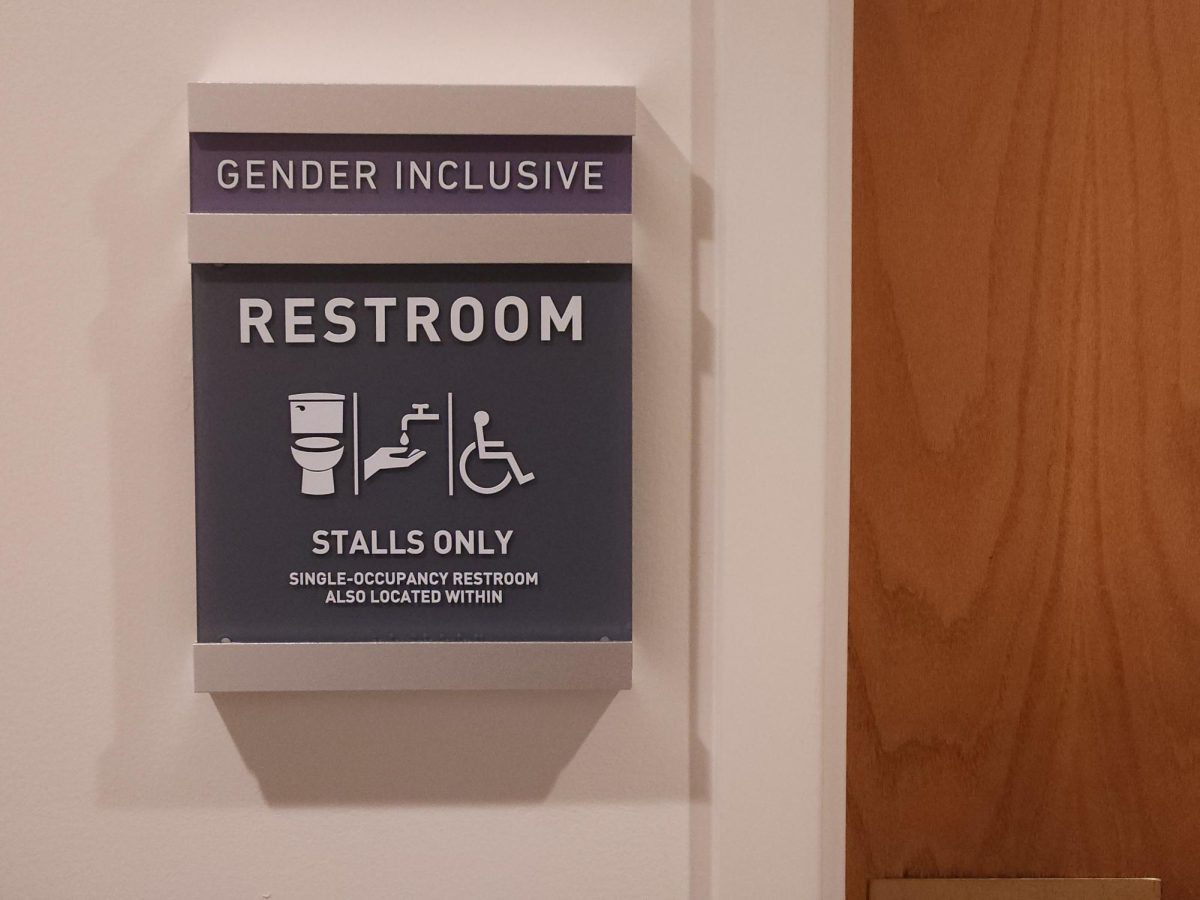Inclusivity at Macalester is not one-size-fits all; one student’s vision of a residential environment that accommodates their needs may not align with another’s. This fall, Residential Life implemented changes to the on-campus housing model to accommodate various student needs.
On Tuesday, Feb. 14, Residential Life sent an email titled “Room Draw Information” to Macalester students, stating that Residential Life will begin using a gender-inclusive housing model in fall 2023. In a following email sent on Wednesday, March 29, Residential Life informed returning students that Bigelow residence hall, which is designated for sophomores and above, would be used for single-gender housing.
“[A gender-inclusive housing model] gives students the option to live with other student(s) regardless of sex, gender, and/or gender identity, and have access to gender-inclusive bathrooms,” Residential Life wrote in the email sent on Feb. 14. “Additionally, this model supports our gender needs and allows Residential Life to have facilities and a program that is rooted in universal design. While the majority of our residence halls and buildings will be gender-inclusive housing, there will be some floors and spaces that will have gender-specific spaces and bathrooms.”
Previously, Macalester had all-gender communities, with gender-inclusive bathrooms, and single-gender floors both had limited capacities. All other living spaces were considered co-ed; all co-ed floors had male and female bathrooms, and some co-ed floors had a gender-inclusive bathroom. Incoming first-years had the opportunity to request to live on an all-gender floor, and sophomores and above could select to live in the all-gender community.
Now, the majority of floors are gender-inclusive, with one first-year residence hall and one residence hall for sophomores and above designated for single-gender housing.
Students can access a current listing of which dorm floors are designated as all-gender and which are designated as single gender in a google spreadsheet created by Residential Life. This spreadsheet also features a list of all single-gender bathrooms on campus.
However, the process of implementing these changes involved much more than simply changing bathroom signs and gendered floor designations, and the changes affected many students in more ways than a simple change in floor labels.
Following student criticisms of Macalester’s housing model and The Mac Weekly’s publication of an article titled “First-year transgender students denied all gender housing” on Nov. 3, 2023, Macalester established the Residential Life Housing and Facilities Advisory Committee. This committee held a goal to better accommodate the housing needs of various students living on campus and developed the changes announced in February 2023.
Following the announcement of these changes, some students voiced their concerns in a Mac Weekly opinion piece written by Anna Diagne Sène and Jordanella Maluka Chagiye Mpoyo and published in The Mac Weekly.
“This change includes many of our students but failed to consider a good number of others,” the article read. “Beyond spiritual needs, some students are simply not comfortable with sharing a bathroom with any other genders. Some students have had traumatic experiences including assault that make them feel more comfortable in single gender spaces. There are students who are already experiencing significant stress and anxiety, just thinking of sharing a bathroom with a person from a different gender and this policy limits their choices to feel safe and comfortable.”
The op-ed went on to call for more single-gender bathrooms on campus, specifically in 30 Mac, Macalester’s designed ADA-compliant building. The piece added that “we can be inclusive without excluding others,” and emphasized that adding more all-gender bathrooms was an important step in expanding inclusivity.
“Student voices throughout this process have been critical in the planning of this model, particularly helping identify more single gender bathrooms on campus,” Executive Director for Residential Life Kyle Flowers wrote in an email to The Mac Weekly. “The Comprehensive Campus Plan (CCP) outlines recommendations to build a new residence hall and renovate current residence halls and it is our intention to approach building and renovating residence halls with a universal design framework in mind.”
Rev. Kelly Stone, associate dean for institutional equity and college chaplain, who served on the Residential Life Housing and Facilities Advisory Committee, shared what universal design meant for her in an interview with The Mac Weekly: “thinking about how one change can meet multiple people’s needs, and how [one change] can create a more inclusive environment broadly, [that satisfies] lots of people’s needs.”
The Residential Life Housing and Facilities Advisory Committee considered accessibility in more ways than floor and bathroom gender designations. Now, many shower stalls have detachable shower heads, which is an essential need for many individuals with mobility limitations.
Stone emphasized that the committee considered ability, religion, gender expression, gender identity and other factors that may affect one’s housing experience.
“As someone who oversees our religious and spiritual life, I have a particular kind of perspective about religious, spiritual and cultural practices that, for some people, might inform how they think about housing and gendered needs,” Stone said. “Now, again, there’s no singular truth for every tradition or every religion around that. But that was a voice that I could bring to the table with my knowledge of our communities.”
Stone’s role in the committee also included producing data and trends of students’ religious identities. Stone held one-on-one meetings with students and circulated a survey with a small sample size in order to gather information regarding students’ individual needs in residence halls.
For incoming first-year and transfer students, Stone also reviewed Residential Life’s housing form to ensure that the survey uses language that is more accessible and familiar to incoming students.
Resident Assistant (RA) Jamie Lansky ’24 is entering his third year as an RA. Two years ago, he was the RA for a co-ed floor with male, female and a gender-inclusive bathroom, and last year, he served as an RA for the all gender community. Now, they’re the RA for a gender-inclusive floor. For Lansky, convenient access to gender-inclusive bathrooms outside their floor makes a difference.
“When I would visit my friends in Turck there were no all gender bathrooms, and as a trans person, I was like, ‘That’s a bit unfortunate,’” Lansky said. “So I personally appreciated that they were [adding more all-gender bathrooms] because I was like, ‘Oh, this will make people like me feel more comfortable.’ So I had positive feelings about it.”
“People on my floor have felt positive about the fact that we have all gender bathrooms,” Lansky continued.
A returning student, who has chosen to remain anonymous in order to protect their safety and privacy as a transgender individual in the current political climate, shared their perspectives on how increased access to gender-inclusive bathrooms impacts their comfortability.
“I also think I’m in a little bit of a unique situation right now, where last year I was presenting a little more femininely, although I’ve always identified as nonbinary,” the student said. “Since going on hormones, I’m starting to present more masculine. So I’m finding that gender neutral bathrooms are becoming more and more valuable to me because I’m not feeling comfortable in a women’s bathroom or a men’s bathroom exclusively anymore.”
For Stone, the changes implemented by the committee are part of a greater, continuous goal of making Macalester a comfortable and safe place for all.
“For me, this was a project in trust building, and deep listening and saying: ‘We hear the worries; we heard in an early part of fall, how [residential housing] didn’t meet needs, and there’s a different pathway forward for us,’” Stone said. “And I would say that’s not done. We’ll continue to puzzle over how we can make spaces more inclusive.”











